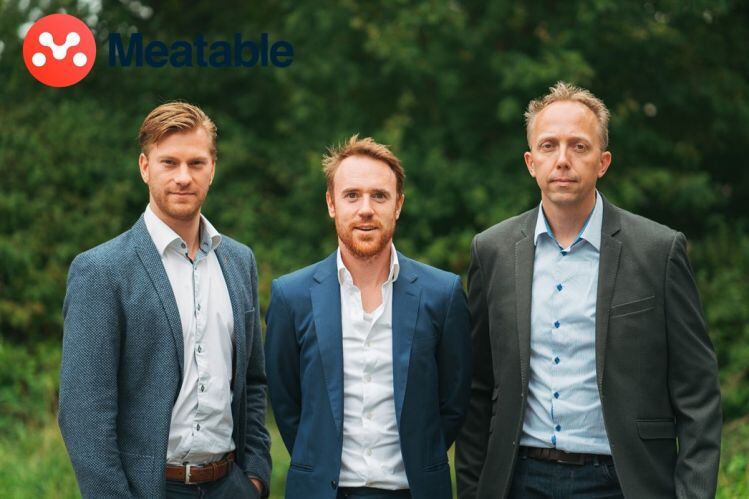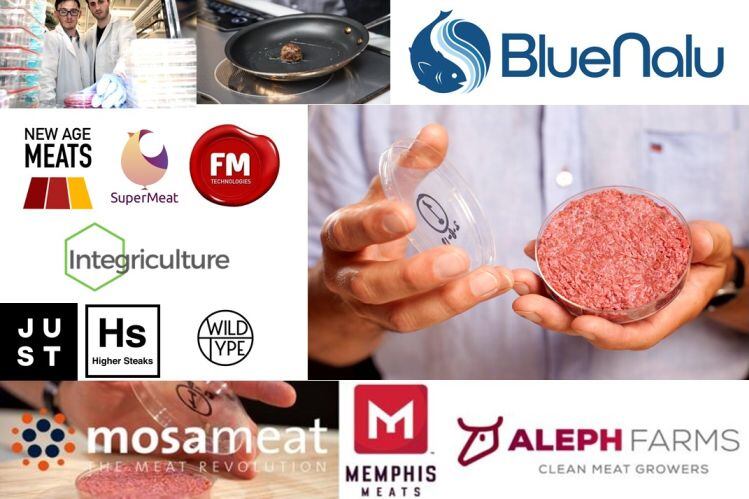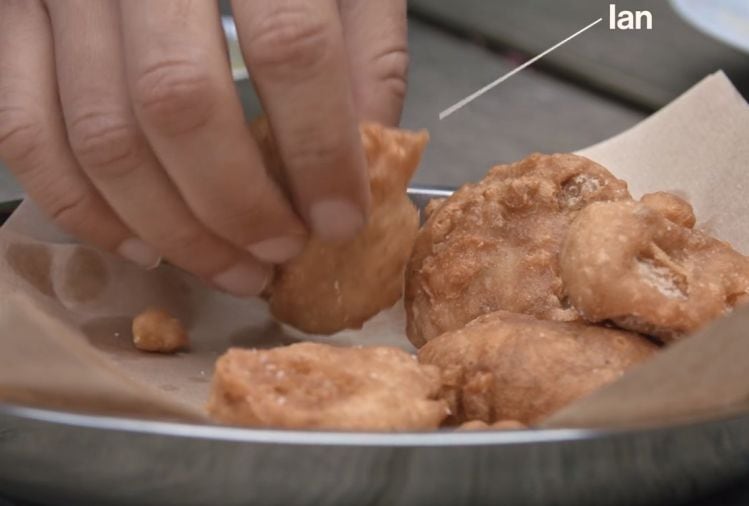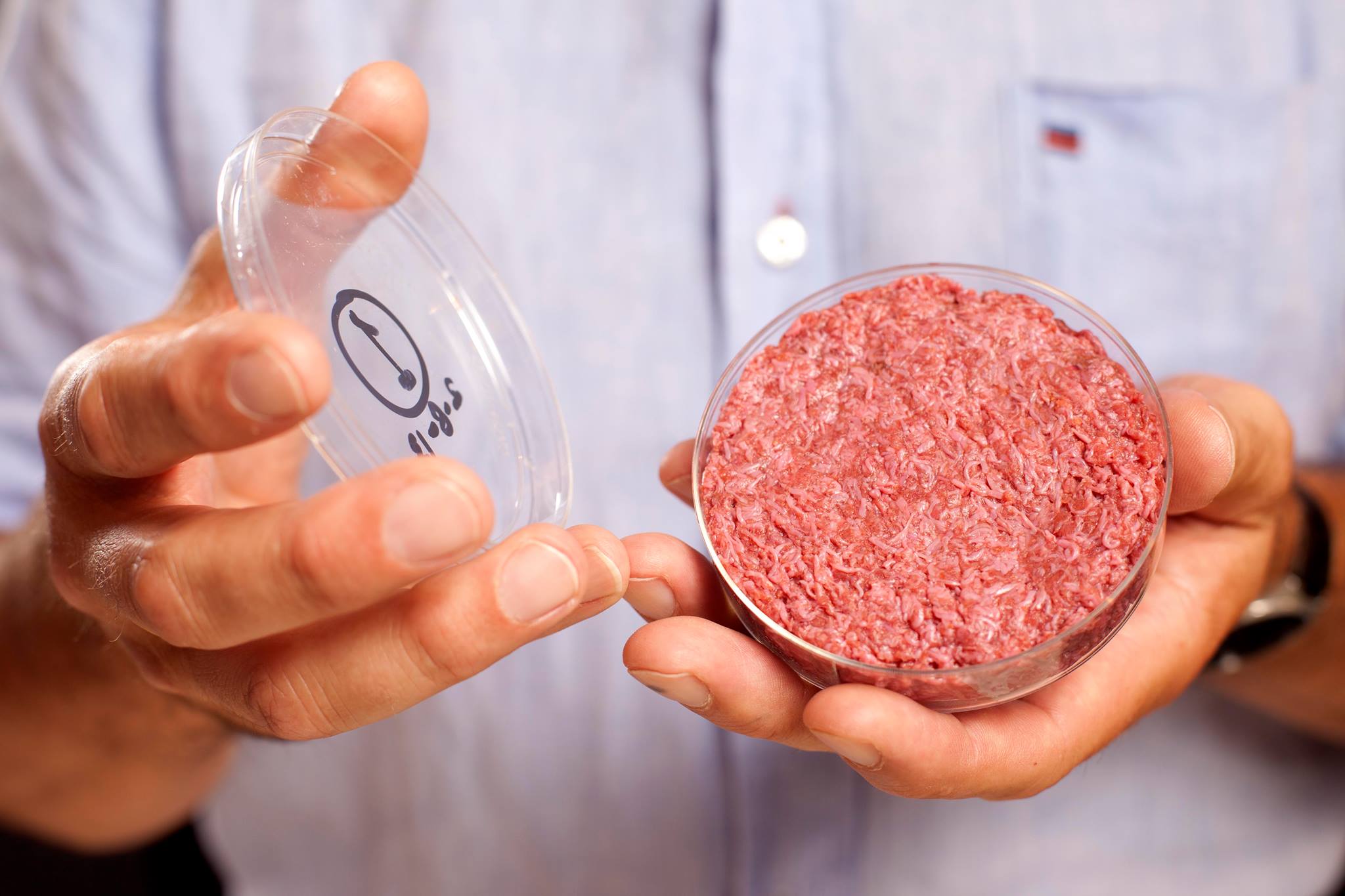The funding round for Dutch start-up Meatable was led by BlueYard Capital and supported by Atlantic Food Labs, Future Positive Capital, Backed VC, and angel investors including Jörg Mohaupt and tech investor Charles Songhurst, and will help Meatable recruit new team members and partners, and support plans to commercialize cell-based meat within three years.
Meatable chief technology officer Daan Luining – who worked with Professor Mark Post on the world’s first cell-cultured burger in 2013 before joining New Harvest, an NGO funding academic research in cultured meat – told FoodNavigator-USA that Meatable is effectively reprogramming Hematopoietic stem cells (HSCs) from the blood of umbilical cords of cows so that they turn into [induced] pluripotent stem cells (iPS cells) or ‘master cells’ that can differentiate into multiple cells types such as muscle and fat, and proliferate indefinitely.
Induced pluripotent stem cells behave like embryonic stem cells, but don’t come from embryos, and don’t require the slaughter or harm of any animal: "The collection method is truly non-invasive," said Luining. "After the calf is born and the umbilical cord is detached, we cannulate one of the veins in the cord and collect the blood in a blood bag. From this blood we isolate cells in the lab."
The collection method is truly non-invasive
After that, the blood cells are effectively 'reprogrammed' to a pluripotent state using technology pioneered by Shinya Yamanaka’s lab in Kyoto, Japan that was awarded the 2012 Nobel prize.
"There are now over a dozen methods to produce iPScs each with pros and cons," said Luining. "We are focusing on methods that do not integrate any genetic material into the host’s genome. There are quite some who work this way so it will be up to us and our team to find out which method produces the most efficient and stable cells."
He added: "The method works by temporarily kickstarting the genes that were active during the state when the animal was only a few cells big. At that moment the cells were in a stage were they could become anything, which we call pluripotent. Professor Yamanaka figured out which genes were active at that time and showed that if you kickstart these genes again the cells behave like pluripotent cells.
"Once started the pluripotent state becomes stable and the cells self-perpetuate this state. These cells have amazing benefits including: unlimited proliferation, complete serum free growth, suspension growth, and pluripotency (the ability to become any cell type that we want).
How Meatable began
He explained: “During my stay at New Harvest I met Dr Mark Kotter [a clinical lecturer and researcher in neurosurgery at Cambridge University in the UK with 18 years of experience in human stem cell biology] and he saw that this reprogramming technology could be repurposed [to producing meat from animal cells]. (Meatable’s other scientific advisor is Professor Roger Pedersen, co-founder of the Cambridge Stem Cell Institute and adjunct professor and senior research scientist at Stanford University School of Medicine.)
“Then we met up with Krijn [CEO Krijn de Nood, who has a background in the financial sector and management consultancy] to develop the business side while Mark and I developed the scientific roadmap, and then we started to fundraise.”
“In conjunction with the work of Professor Roger Pedersen at Stanford University, the technology my team has developed overcomes the scalability issues that have been holding back progress in this field. The cell lines we’ve developed proliferate indefinitely and produce millions of identical cells, at unprecedented purities and within a very short timeframe. The result is genuine tissue that does not require fetal bovine serum to grow -- the standard cellular medium upon which cells usually feed -- which has been one of the biggest barriers to producing meat at scale.”
Mark Kotter, MD MPhil PhD, scientific advisor, Meatable; neurosurgery clinician scientist and lecturer at University of Cambridge, UK
“In addition to the obvious value of novel meat production methods to society, the business opportunity is enormous. The global meat market is valued at $1 trillion and is expected to grow significantly, especially with the rise of middle-income countries in Asia. For comparison, the combined active markets of Airbnb, Uber, and Spotify are smaller than the global meat market.”
Krijn de Nood, CEO, Meatable

One cell to change the world?
The initial focus for Meatable is beef, although its technology can be applied to multiple other species, including chicken and pigs, said Luining.
"So far, it’s been very hard to control pluripotent stem cells, but with the technology we’ve developed we can differentiate them within five days at extremely high speeds – whereas the usual protocol is around is around 60 days.
“So we think we have a big advantage over the other players [industry sources have told us that many companies in the space are now exploring iPScs, with many exploring multiple cell types in parallel since there are so many trade-offs, for example, between proliferative capacity and efficiency of differentiation down the desired pathways, and no consensus yet which approaches will prove most viable for large-scale meat production].
“Our cells also don’t need a surface to attach to such as microcarriers or petri dishes in the initial proliferation phase," said Luining.
"They can grow in aggregate - small clumps or balls of cells – they attach to each other in big stainless steel tanks, and then we’d harvest them and put them in a tissue reactor where they can form solid tissues. We’re working with multiple companies to develop an edible or biodegradable, scalable and animal free scaffolding material that also allows us to perfuse the tissue to create a product that’s 100% similar to a steak, although we’ll start off with something more like mincemeat.
“We’re also looking into electrostimulation [to ‘exercise’ the muscles] to see how the frequency or intensity of contractions or which directions we contract them has an effect on the tissue.”
De Nood added: “We have this slogan, ‘One cell to change the world,’ because we can feed the world with a single cell [that can divide and multiply indefinitely if kept happy and well-fed], you don’t have to keep going back to the animal. They don’t need to be stimulated as much and are proven to grow without fetal bovine serum, they have a high proliferation speed, and they can become both fat and muscle.”
A prototype is one thing, but you’ve got to show a process that is scalable and sustainable
Given that Meatable has only just launched, the business model could evolve, he said: “We could foresee that in the beginning we’d sell something under the Meatable brand to get customers comfortable with the concept, but longer term we could see partnerships or develop a licensing model. Once we move to a Series A and get closer to market, then there’s a lot of strategic partners that could be interesting when we’re looking at packaging, logistics, distribution and so on.”
As for IP, he said, “We have access to patents developed at Cambridge and Stanford which allows us to be the most efficient. Clean meat starts with having the best cells, and if you can make that work the rest will follow. The core of our IP is around the cells, and we are also looking at patenting the whole production process, whereas the [growth] medium is probably more of a trade secret.
“We’ve said within the next three years we’ll present a hamburger produced in a way that is 100% scalable, and then have a [commercial] product on the market in year four.”
While some other players have promised to bring products to market sooner, being first doesn’t really offer any advantages, Luining claimed. “A prototype is one thing, but you’ve got to show a process that is scalable and sustainable, and that’s what matters.”
Regulation and labeling: Term cell-based meat is 'nice and neutral'
As for labeling and nomenclature, Meatable is comfortable with the term ‘cell-based meat’ as it’s “nice and neutral,” he said.
Regulatory issues may determine where Meatable launches, he added. “We’re definitely going to start a Novel Food application in Europe, but the situation in the US is not that clearcut yet, but we believe there is demand for this on every continent.”





